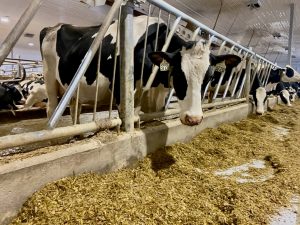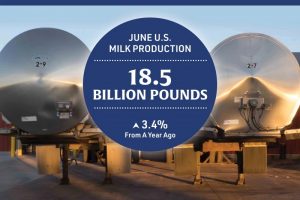
In order to address these challenges, it’s important that the Canadian government uphold the commitment made by Minister Freeland to compensate the dairy sector, including processors for losses resulting from these trade agreements (Canada-Europe Trade Agreement, Comprehensive and Progressive Agreement for Trans-Pacific Partnership and United States-Mexico-Canada Agreement). This is a critical transition measure to enable our sector to compete in this changed marketplace.
The various types and amounts of access granted to other countries to the Canadian dairy markets exert substantial downward pressure on margins in the domestic dairy-processing industry, which in turn acts as a strong disincentive for investments in the sector. In line with the Dairy Processors Association of Canada, and its request, Parmalat Canada seeks an annual compensation to offset the impact of the three trade agreements on dairy processors over each year of the coming six years in the form of non-repayable contributions, tax credits, investment incentives or a combination thereof, to improve the competitiveness of the dairy-processing sector in this industry.
In addition, trade-compliant payment programs should be developed in order to fully offset the negative impact of the United States-Mexico-Canada Agreement, USMCA. Export restrictions on skim milk powder and milk protein concentrate should also be considered.
Retailers should be curbed
As we are speaking about the impact of trade on the sector, I would like to take this opportunity to share some concerns related to the Canadian grocery retail sector, which, if not curbed, will, in combination with the pressures brought about by the new trade agreements, squeeze processors unsustainably and have a negative impact on consumers as well as on the long-term health of the Canadian dairy industry. In Canada, the top five retailers will account for something like more than 80 per cent of total grocery sales, and that proportion is growing. This concentration of sales among a small group provides an opportunity for a few players to leverage their significant market power to the detriment of our industry.
In fairness to consumers and the industry, we urge the government to look at additional oversight of the grocery industry to prevent practices that unfairly squeeze processors, forcing consolidation; reduce investment in infrastructure, R&D and other elements that support Canada’s competitive capability, reduce innovation and consumer choice and raise prices for Canadians.
At the end of the day, uncompetitive practices from the grocery industry will serve only to decrease competition, the number of processors, and increase prices in the dairy-processing sector. Competitiveness is a fundamental requirement for a healthy industry. We need government to take the opportunity to provide oversight and governance and be a moderating influence that supports and guides a focus on end-to-end supply chain efficiency and development rather than allowing the current sharp practices to escalate, which only serves to distract the industry from striving to improve its competitiveness, reducing total costs from farm to fork and increasing investment to guarantee the future of this industry.

























